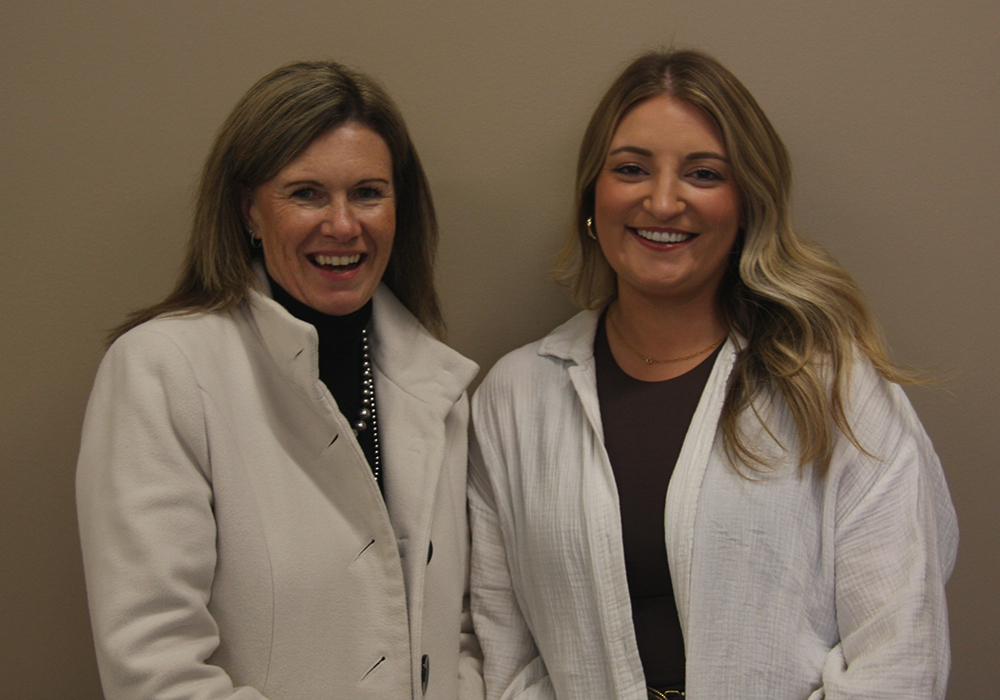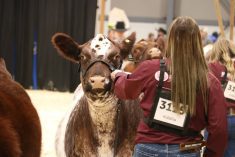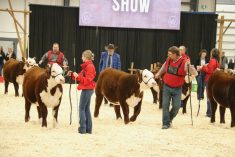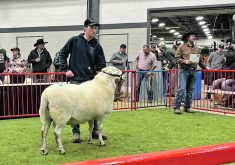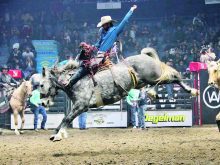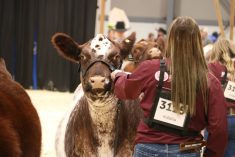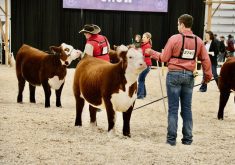The program offers opportunities and resources to those looking to build their ag careers
For those who are great at giving advice or are looking to nurture their career, the Next Gen Agriculture Mentorship program is a good place to start.
The 18-month program was started by Canadian Western Agribition in 2019 with a goal of creating community and strengthening industry connections. It has created eight mentee-mentor pairs each fall for the last five years.
Mentees must be 18 to 39 years old, while mentors can be of any age. Applicants for both roles must have some role in agriculture.
Read Also

Crop quality looks good this year across Prairies
Crop quality looks real good this year, with the exception of durum.
Cohort 6 was launched this year during Agribition.
Sandy Russell, chief executive officer of Canadian Beef Breeds Council, is mentor to Jenna Sarich, a technical consultant and analyst for the Canadian Roundtable for Sustainable Beef and a public and stakeholder engagement technical consultant with the Canadian Cattle Association.
They were paired last fall as part of Cohort 5 and say they have learned many things from each other.
“I always say mentorship is really a win-win for the mentor and the mentee,” said Russell.
“I feel like I get more, far more, value out of it than I contribute.”
Russell was involved in the early stages of the mentorship program’s development.
She said the organizers looked at mentorship programs established at universities and corporations to see what Next Gen Agriculture should incorporate. The goal was to create a structure where mentees “can really thrive and connect with not only mentors, but all people in the industry”.
To accomplish this, they kept the typical focal point of the mentor and mentee but expanded the greater focus to program alumni. Those involved are encouraged to interact and communicate with the other cohorts to share their experiences and what they learn.
Sarich said the program, especially each cohort, grows close. Participants learn together about topics such as media, governance and financial literacy training, which can help build connections through vulnerability.
“Especially in media training, you kind of have to feel vulnerable in some instances, because you’re really working on the things that you want to get better at,” she said.
Mentors don’t have to follow a fixed structure. Instead, it is determined by the mentors’ style and the mentee’s goals. Some pairings are more standardized than others or talk more often.
“Some mentors will be a little bit more structured and have very specific things for their mentees to do or accomplish — take an emotional intelligence test or that type of thing,” Sarich said.
“So, I think it’s definitely quite variable, but I think it can work with whatever you have going on in your life. You can kind of adjust it to that spectrum.”
For example, Sarich and Russell often see each other at industry events because they’re both in the cattle industry. They’ll meet up and discuss things there but have no problem talking over the phone when Sarich is looking for some advice or they just want to touch base with each other.
“Whenever I have questions, regarding career or other opportunities that come up for me, I reach out to her, and she’s always been really good at giving me advice,” Sarich said of Russell.
“But she always tells me that she learns from me as I learn from her, so it doesn’t feel as hierarchical.”
Other pairings may meet up on each other’s operations, have weekly or monthly chats or send articles or research papers for mentees to read. It’s all about what the mentee wants to get out of the experience.
Participants can have a variety of reasons for joining the program.
For Russell, she wished she’d had an opportunity for a formal mentorship when she was beginning her career. For Sarich, she wanted to grow connections and feel more confident when taking on leadership roles.
Others in the program join because they want advice about growing their career in agriculture or want to help young people in the industry.
“I would just say to anyone, whether you’re a producer, you’re new in the industry (or) you’re trying to build a career, consider it and invest in it,” said Russell.
“I think it’s such a great program. You ‘ll get so much more out of it than anybody could imagine.”
The program can be time consuming, but the pair say it’s worth it. Russell has seen the growth with Sarich and her industry involvement.
Sarich advises participants to put in the time and not let the mentorship fall to the back burner.
“If you really want to grab the bull by the horns and take advantage of every opportunity, the program will provide you a lot of that,” she said.
“But it’s a lot on what you want to get out of it and how much you want to get out of your comfort zone.”
She thinks those just beginning their careers will get the most value from the program.
“The younger or newer, the better.”
The program opens doors to industry events and helps people over the “initial hurdle” of intimidation that comes from attending events and not knowing anyone. Conferences and events such as Agribition can help participants get into rooms with industry leaders.
Russell believes these kinds of programs are “huge” for the ag community, saying they will provide the tools, resources and skills for the next generation to grow in their roles and improve agriculture.




